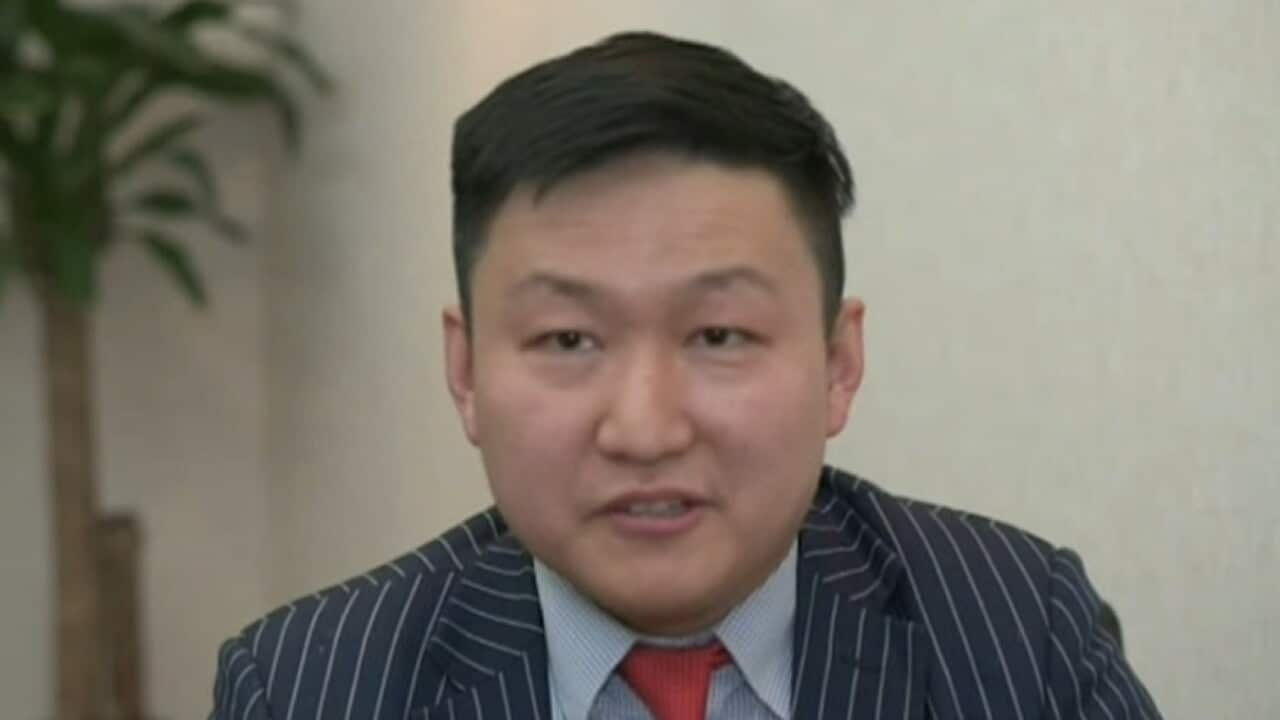This year marks 45 years of bi-lateral relations between China and Australia - forged with Gough Whitlam's formal recognition of the Chinese Communist Party in 1972.
But for many in Beijing's business community, there's little to celebrate.
Education consultant Ricky Niu is concerned recent tensions over Australia's new foreign influence laws will affect his work.
"If people see anti-China (sentiment), they'll ask themselves why should I go to Australia for travel, why should I go to Australia for study? This year is a very low point of the relationship, despite being the 45-year anniversary," Mr Niu told SBS News.
Based in Beijing he helps Chinese students study in Australia, a key source of income for the Australian economy.
Mr Niu says the industry could now be at risk, thanks to comments on Chinese interference by Prime Minister Malcolm Turnbull.
"It's really shocking, really short-sighted, and not properly thought through," he said.
"It's embarrassing that Australia made these comments without talking with China first. The Chinese government prefers to have these kinds of discussions behind closed doors."
Mr Niu says Australia is still a desirable education destination for Chinese students, but the country's reputation as a "friend of China" is in question thanks to Australian politicians using China as a political football in tousles over domestic politics.
"Australia will pay heavily for playing with China for the sake of political capital," Mr Niu said.
"He (Malcolm Turnbull) wants people to see he's a very strong national leader but I think it's very dangerous to do that."
Meanwhile Chinese state media have this week ramped up reports of Australia's "anti-China sentiment" with "racist undertones".
These articles have been seen by Vivienne Li's customers. The Beijing-based investment consultant helps Chinese investors find properties in Australia.
"That's definitely an issue for my customers," Ms Li said.
"They will definitely be concerned about whether it will be safe for them to live in Australia, and whether their investment will be in a good environment."
So far Ms Li has been able to reassure her clients, but says it will not be enough if bilateral relations do not improve.
"I don't see impact right now but in the future there will be if the Australian government doesn't do anything. They need to do something to prevent it worsening, but I am positive overall.
"I've lived in Australia for a long time and these disputes have occurred before."
Diane Hu, from the Australian Studies Centre at Beijing's Foreign Studies University, says Australian leaders try to separate politics from economy and trade when dealing with Beijing - an approach which does not work in China.
"For the Chinese way of thinking, and pretty much the thinking of every country in the world, these two things do come hand-in-hand, they cannot be separated," Ms Hu said.
At Beijing's State Diaoyutai guesthouse yesterday, a luncheon marking 45 years of relations was subdued.
There were no major Chinese officials attending, instead Xie Yuan - vice president of the China-Friendship Association - gave a speech.
"We hope the Chinese government will join hands with the Australian government and deal with disputes in an appropriate manner to promote healthy and steady bilateral relations between China and Australia," Mr Xie said, alluding to the dispute at the very end.

